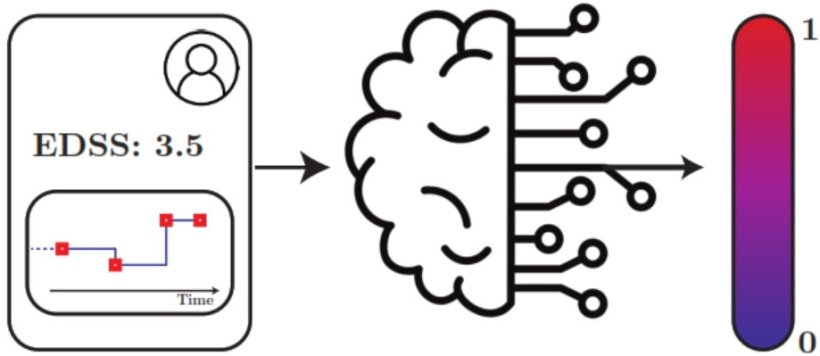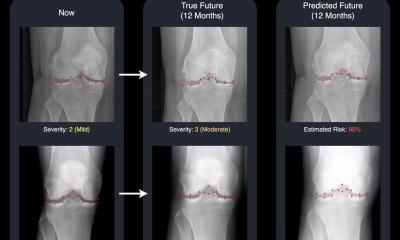
Image source: De Brouwer et al., PLOS Digital Health 2024 (CC-BY 4.0)
News • Machine learning forecast of MS
Multiple sclerosis: predicting progression with AI
Machine learning models can reliably inform clinicians about the disability progression of multiple sclerosis, according to a new study.
Multiple sclerosis (MS) is a chronic progressive autoimmune disease that leads to severe disability over time through a complex pattern of progression, recovery, and relapse. Its global prevalence has increased by more than 30% over the last decade. Yet there are few tools that can predict the progression of MS to help clinicians and patients make life planning and treatment decision-making.
Our rigorous benchmarking and external validation support the vast potential of machine learning models for helping patients planning their lives and clinicians optimizing treatment strategies
Edward De Brouwer
In the new study published in the open-access journal PLOS Digital Health, Edward De Brouwer of KU Leuven, Belgium, and colleagues used data on 15,240 adults with at least three years of MS history who were being treated at 146 MS centers in 40 countries. Data on two years of each patient’s disease progression was used to train state-of-the-art machine learning models to predict the probability of disease progression over the subsequent months and years. The models were trained and validated using strict clinical guidelines, promoting applicability of the models in clinical practice. While individual models varied in performance across different patient subgroups, the models had an average area under the ROC curve (ROC-AUC) of 0.71 ± 0.01. The study found that the history of disability progression was more predictive for future disability progression than treatment or relapse history.
The authors conclude that the models developed in the study have the potential to greatly enhance planning for individuals with MS and could be evaluated in a clinical impact study.
De Brouwer adds: “Using the clinical history of more than 15,000 people with multiple sclerosis, we trained a machine learning model capable of reliably predicting the probability of disability progression in the next two years. The model only uses routinely collected clinical variables, which makes it widely applicable. Our rigorous benchmarking and external validation support the vast potential of machine learning models for helping patients planning their lives and clinicians optimizing treatment strategies.”
Source: PLOS
26.07.2024










